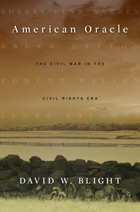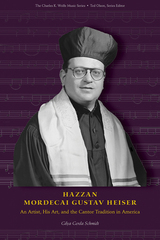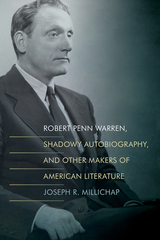
“The ghosts of the Civil War never leave us, as David Blight knows perhaps better than anyone, and in this superb book he masterfully unites two distant but inextricably bound events.”―Ken Burns
Standing on the steps of the Lincoln Memorial on August 28, 1963, a century after the signing of the Emancipation Proclamation, Martin Luther King, Jr., declared, “One hundred years later, the Negro still is not free.” He delivered this speech just three years after the Virginia Civil War Commission published a guide proclaiming that “the Centennial is no time for finding fault or placing blame or fighting the issues all over again.”
David Blight takes his readers back to the centennial celebration to determine how Americans then made sense of the suffering, loss, and liberation that had wracked the United States a century earlier. Amid cold war politics and civil rights protest, four of America’s most incisive writers explored the gulf between remembrance and reality. Robert Penn Warren, the southern-reared poet-novelist who recanted his support of segregation; Bruce Catton, the journalist and U.S. Navy officer who became a popular Civil War historian; Edmund Wilson, the century’s preeminent literary critic; and James Baldwin, the searing African-American essayist and activist—each exposed America’s triumphalist memory of the war. And each, in his own way, demanded a reckoning with the tragic consequences it spawned.
Blight illuminates not only mid-twentieth-century America’s sense of itself but also the dynamic, ever-changing nature of Civil War memory. On the eve of the 150th anniversary of the war, we have an invaluable perspective on how this conflict continues to shape the country’s political debates, national identity, and sense of purpose.

But this book is more than a memorial to Heiser. Schmidt melds decades of archival research, conservation efforts, family interviews, and trips to Jerusalem and Berlin into a critical reconstruction of the life and vision of Hazzan Mordecai Gustav Heiser in the multiple contexts that shaped him. Coming of age in Berlin in the afterglow of the Second German Empire meant that young Gustav had tasted European Jewish culture in a rare state of refinement and modernity. But by January 30, 1940, when he reached New York with his wife, Elly, and two-and-a-half-year-old daughter, Judith, Cantor Heiser had lost nearly all of his living family relations to the extermination programs of the German Reich, after narrowly surviving a brief incarceration at Sachsenhausen.
While Cantor Heiser’s art was steeped in nineteenth-century tradition, Schmidt contends that Heiser’s music was a powerful affirmation of Jewish life in the twentieth century. In a final chapter, Schmidt describes his influence on the American cantorate and American culture and society.


Toward the end of his career, Robert Penn Warren wrote, “It may be said that our lives are our own supreme fiction.” Although lauded for his writing in multiple genres, Warren never wrote an autobiography. Instead, he created his own “shadowy autobiography” in his poetry and prose, as well as his fiction and nonfiction. As one of the most thoughtful scholars on Robert Penn Warren and the literature of the South, Joseph Millichap builds on the accepted idea that Warren’s poetry and fiction became more autobiographical in his later years by demonstrating that that same progression is replicated in Warren’s literary criticism. This meticulously researched study reexamines in particular Warren’s later nonfiction in which autobiographical concerns come into play—that is, in those fraught with psychological crisis such as Democracy and Poetry.
Millichap reveals the interrelated literary genres of autobiography, criticism, and poetry as psychological modes encompassing the interplay of Warren’s life and work in his later nonfiction. He also shows how Warren’s critical engagement with major American authors often centered on the ways their creative work intersected with their lives, thus generating both autobiographical criticism and the working out of Warren’s own autobiography under these influences. Millichap’s latest book focuses on Warren’s critical responses to William Faulkner, John Crowe Ransom, Herman Melville, Nathaniel Hawthorne, John Greenleaf Whittier, and Theodore Dreiser. In addition, the author carefully considers the black and female writers Warren assessed more briefly in American Literature: The Makers and the Making.
Robert Penn Warren, Shadowy Autobiography, and Other Makers of American Literature presents the breadth of Millichap’s scholarship, the depth of his insight, and the maturity of his judgment, by giving us to understand that in his writing, Robert Penn Warren came to know his own vocation as a poet and critic—and as an American.
READERS
Browse our collection.
PUBLISHERS
See BiblioVault's publisher services.
STUDENT SERVICES
Files for college accessibility offices.
UChicago Accessibility Resources
home | accessibility | search | about | contact us
BiblioVault ® 2001 - 2024
The University of Chicago Press









